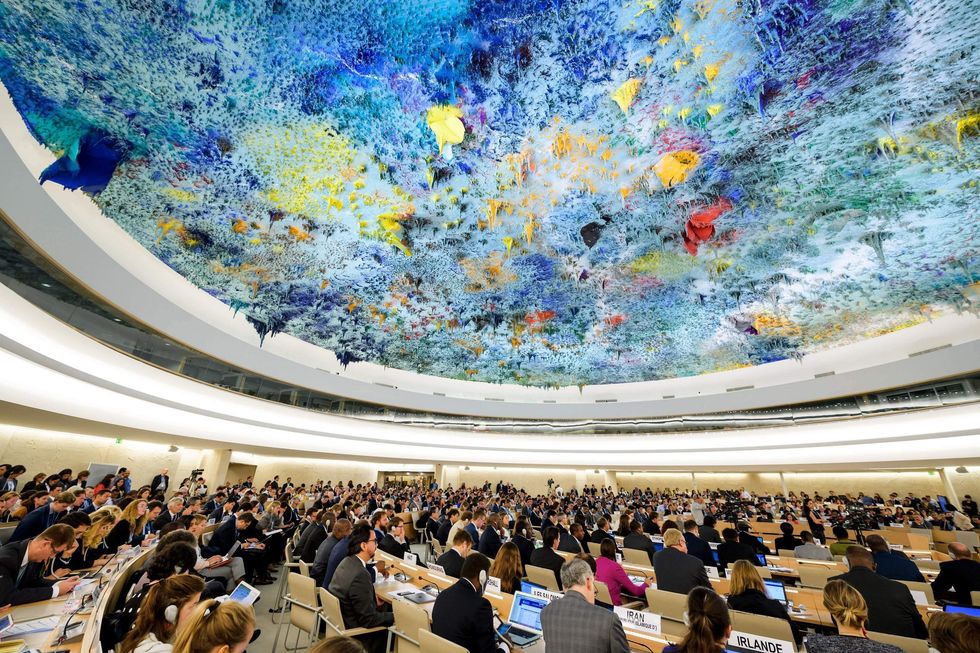
A coalition of indigenous peoples from various countries have gathered at the United Nations in an attempt to craft laws that would make cultural appropriation illegal across the world. (Getty Images)

Native American and "indigenous activists" hailing from New Zealand, Kenya, Mexico, Colombia, and the U.S. are pushing the United Nations to make it illegal for other cultures to "culturally appropriate" the styles of "traditional cultures," according to the CBC.
Cultural appropriation is what many in the social justice community consider the unauthorized utilization of a culture's methods and styles in order to incorporate them into food, music, art, and even Halloween costumes. This is considered an injustice by those in the social justice community, whether it is used for innocent or malicious purposes.
On Monday, University of Colorado Law School dean James Anaya told a specialized committee within the U.N.'s World Intellectual Property Organization that the world organization should "obligate states to create effective criminal and civil enforcement procedures to recognize and prevent the non-consensual taking and illegitimate possession, sale and export of traditional cultural expressions."
According to the CBC, the committee has been working since its founding in 2001 on three items that would expand intellectual property regulations to include the protection of indigenous designs, medicines, and words.
Anaya said these three U.N. provisions should also prohibit retail outlets from claiming a product was made or endorsed by indigenous peoples. Anaya cited a 2012 legal battle between the clothing store Urban Outfitters and the Navajo Nation over Urban Outfitters' "Navajo" line, which includes "Navajo hipster panties," a "peace treaty feather necklace," and a "Navajo print flask."
The case was settled out of court in late 2016 and terms of the settlement were kept confidential, but USA Today reported that both parties agreed to collaborate together on products for sale in the future.
Tribal leaders believe that the U.N. special committee has been taking too long to craft the new rules, and that as the committee delays, more instances of cultural appropriation occur.
"We are only halfway through 2017 and yet the number of occurrences of misappropriation happening to Indigenous Peoples in all regions of the world seems relentless with no relief in sight," said Aroha Te Pareake Mead, member of the Ngati Awa and Ngati Porou tribes of New Zealand.
"We asked the international community to help deal with a problem that traverses international boundaries and are still waiting," Mead said.
Not present at the negotiations were members from Canada's indigenous tribes. Instead, Canadian officials from Global Affairs Canada, Innovation, Science and Economic Development Canada, and Canadian Heritage are taking part in the crafting of the international laws. The absence of Canadian indigenous peoples has drawn criticism from U.N. officials.
"The elders and knowledge keepers are the authorities who should oversee the creation of guidelines and a process for utilizing Indigenous knowledge in any activities," Assembly of First Nations National Chief Perry Bellegarde told CBC in a written statement.
"We welcome the investigation of such topics on an international stage like the United Nations, but it's crucial that Indigenous knowledge keepers are part of the dialogue," he added.
The news that a U.N. coalition is attempting to craft laws that would prohibit the use of other cultures' methods and styles was met with harsh criticism on Twitter.
Alex Griswold of the Free Beacon tweeted that the assembly was "illiberal, ridiculous, and downright dangerous."
This is illiberal, ridiculous, and downright dangerous https://t.co/uhNQQmJ41e
— Alex Griswold (@HashtagGriswold) June 13, 2017
WikiHow illustrator Stephen Lowe called the logistics of such an international law "absurd."
Who gets to determine who gets to do what? How many generations back to we go? How is this going to be enforced? This is absurd.
— Stephen Lowe (@TheWikiHowGuy) June 13, 2017